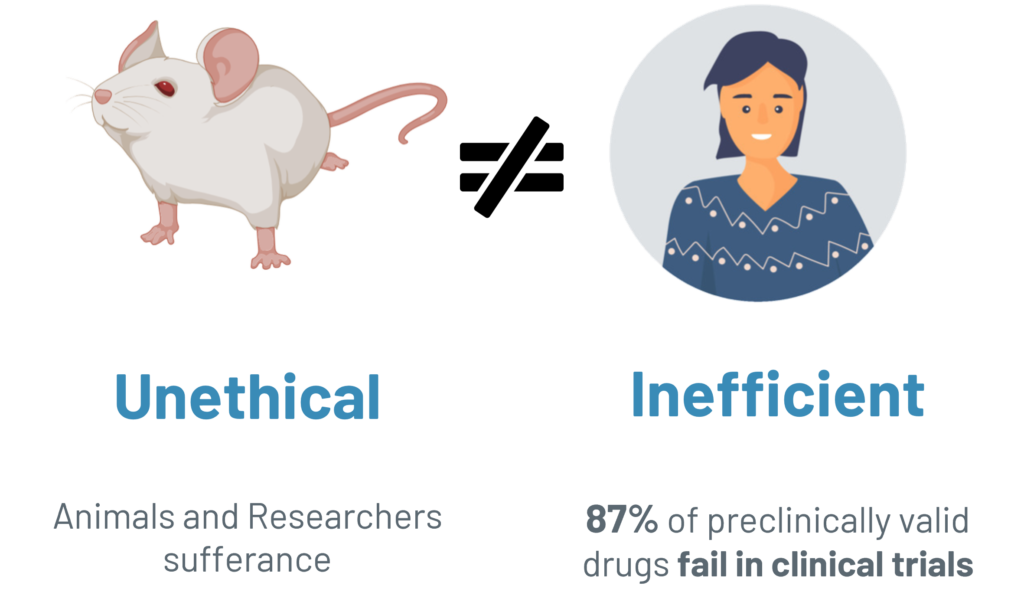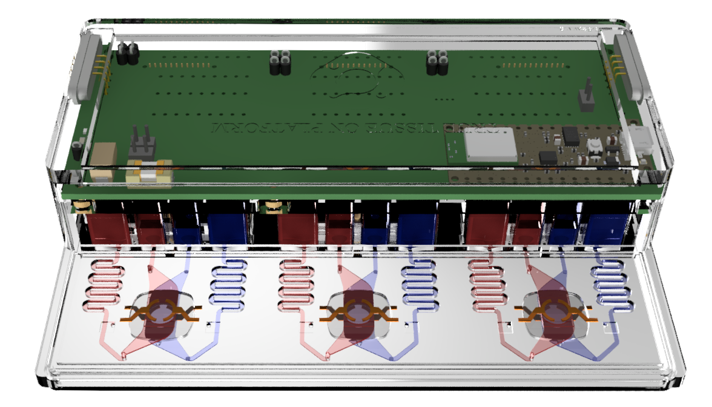The drug development process is extremely costly and time-consuming. Estimates suggest that launching a new drug requires over $2 billion
and 10 to 12 years in R&D.
Current preclinical evaluations of drug safety and efficacy rely on conventional cell culture technologies and animal models, which often fail
to accurately predict human responses. Furthermore, the effectiveness of traditional in vitro cell models is too limited due to their inability to
mimic tissue-like structures accurately.
On the other hand, animal models do not fully ensure that results
will be applicable to humans, and their use raises ethical issues.
Despite the significant expenses incurred during the preclinical
evaluation of a new drug, more than 80% of the investigated
candidate drugs fail the clinical tests.
Among these failures, 60% are attributed to limited efficacy, while
30% result from cell/organ toxicity or challenges in delivering the
drug to its intended targets.

“To amend the Federal Food, Drug, and Cosmetic Act to allow manufacturers and sponsors of a drug to use alternative testing methods to animal testing to investigate the safety and effectiveness of a drug, and for other purposes”.
Micro Physiological Systems (MPSs) have been introduced in the
last decade, providing the basis for preclinical assays with greater
predictive power with respect to traditional cell cultures. They are
believed to have the potential to revolutionize the pharmaceutical
industry, providing reliable in vitro models able to
replicate keystructures and functions of specific human tissues,
using uman-derived material.
A reduction of 10-26% in R&D costs per new drug has been estimated upon full adoption of these technologies in the drug development pipeline.

Our products are easy to use, for everyone, with our plug and play technology.